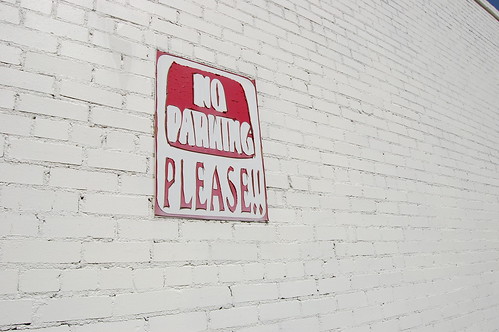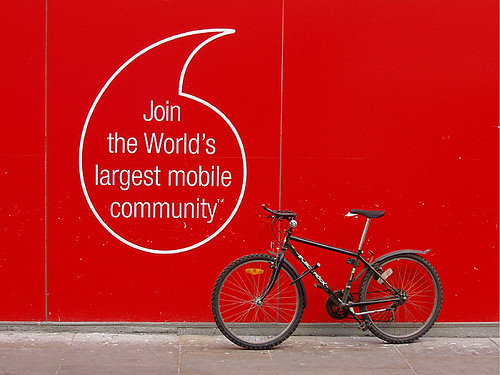I send some of these things out to my community group leaders via e-mail but thought I’d start trying to share some of them here as well.
If you haven’t subscribed to the Threads podcast – there’s no better time than today.
They also offer other podcasts as well as the option to download individual episodes online. One of my favorite episodes is #5 that talks specifically about learning styles – something I’m trying to learn more about and put into place in my small group. It’s easy for me to see it on Sunday morning but harder to visualize in my group.
“Culture never informs Scripture but Scripture informs culture.”
Using media might help people see God in a new way.
—
Effective Small Group Bible Study
How do you know when a Small Group Bible study has been effective? Try this simple assessment tool:
* Do people love God more? — They are experiencing more of God’s presence, peace, and power in their lives and there is a greater desire to draw near to Him.
* Do people love one another more? — They are more “other-focused,” naturally serve one another, and build each other up in love. This results in developing people’s sense of belonging and gifting.
* Do people love the lost more? — Their compassion and concern for the lost is intensified and they become more Kingdom-minded in their daily affairs.
* Do people love God’s Word more? — They take more initiative in seeking to know the Lord through His Word. They understand His grace more, and they are compelled to share biblical truth with others.
What is the common thread in these outcomes of effective Bible study? People love more, and they are empowered to fulfill The Great Commandment so they can effectively engage in The Great Commission.
Small group leaders can create an environment that gives birth to this life-giving, Acts 2 dynamic. However, it is important to remember that you can plant and water, but God is the One who makes it grow (1 Corinthians 3:6-7). Just know that the faithfulness the Lord honors is showing up, making time for the group each week, and being obedient to what He is leading you to do.
(from the Smallgroups.com newsletter)
—
Ideas for Small Group Worship and Prayer
READ together the following passages of scripture before starting your time of praise.
Psalm 103:1-5; Jeremiah 29:11; Psalm 104:33-34; Psalm 105:1-3
Say something like: Our only props tonight are our two hands and ten fingers. I am going to guide our group through a time of prayer and praise. Please pray as I direct you. There will be times I will ask you to pray silently and times I would like to ask you to pray sentence prayers out loud. These prayers are to be short and in popcorn style (praying when something comes to mind and praying more than once if you want). If you feel uncomfortable please feel free to pray silently.
First, I want you to hold out your hands cupped together as if you are receiving something, and we will pray sentence prayers (out loud) thanking God for his provision. Thank Him for the things he has given us, like our families, jobs, friends, salvation, etc.
Allow this to go until there is silence and you feel as if everyone has prayed.
Next, I want you hold up the thumbs on your hands and pray prayers that thank God for those promises that you cling to when life is hard. For example: “Lord, I just praise you for the promise that you will never leave me nor forsake me.”
Again, allow this to go until there is silence and you feel as if everyone has prayed.
Now, would you please hold up your pointer fingers? Please, in popcorn style, simply name the people in your life who have helped point you in the way of salvation, either by their words or their lifestyle. Someone speak a name, someone else go ahead, and continue speaking one name at a time until you have exhausted the list of people who have influenced you to Christ.
Allow this to go until there is silence and you feel as if everyone has prayed.
Now, add to your thumb and pointer finger your third and tallest finger. Thank God, silently, for your personal savior, for Jesus who allowed himself to be crucified so that our sins would be canceled out.
Allow for a few minutes of silence and then go on.
Next, look at your fourth finger or the ring finger. This finger, because we wear wedding rings on it, reminds us of our commitments. Take a minute now to thank God for the responsibilities he has entrusted to you. It could take the form of thanking God for the wife and kids God has placed in your life, or it could be the job or ministry or friendships He has given you. You may pray these prayers silently.
Allow for a few minutes of silence and then go on.
Lastly, looking at your little finger, let us remember all the little things in our lives that bring us joy. For me, it might be good books. For you, it might mean playing racquetball on Monday afternoons. Pray sentence prayers of thanks to God for the small things in life that bring us satisfaction and a sense of well being. You may want to pray short sentence prayers several times as things come to your mind.
Allow this to go until there is silence and you feel as if everyone has prayed.
After you feel as if everyone has prayed, close your prayer time with a prayer of thanks and praise for all God has given and done in your lives.
(from WorshipWorks)
Like this:
Like Loading...



